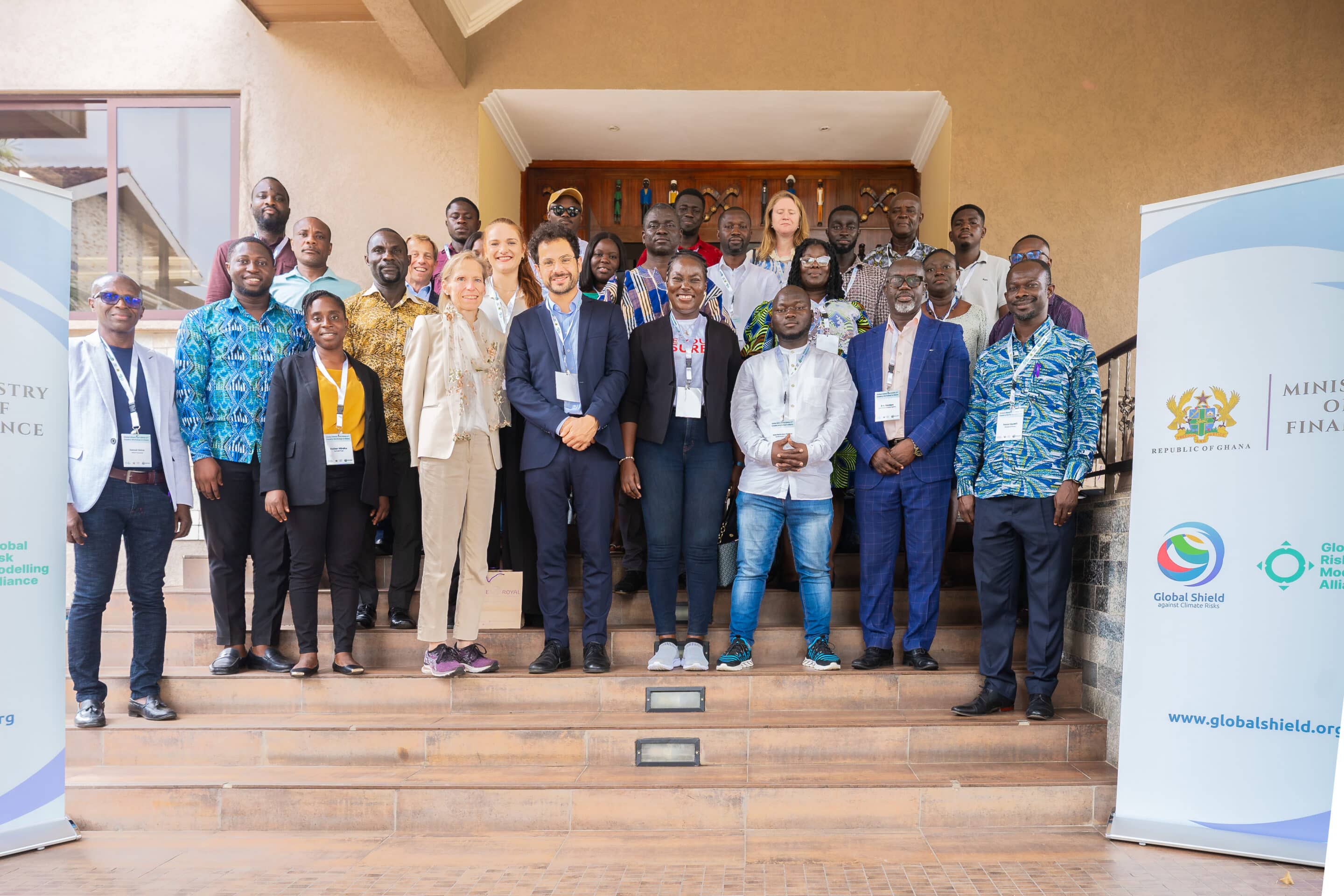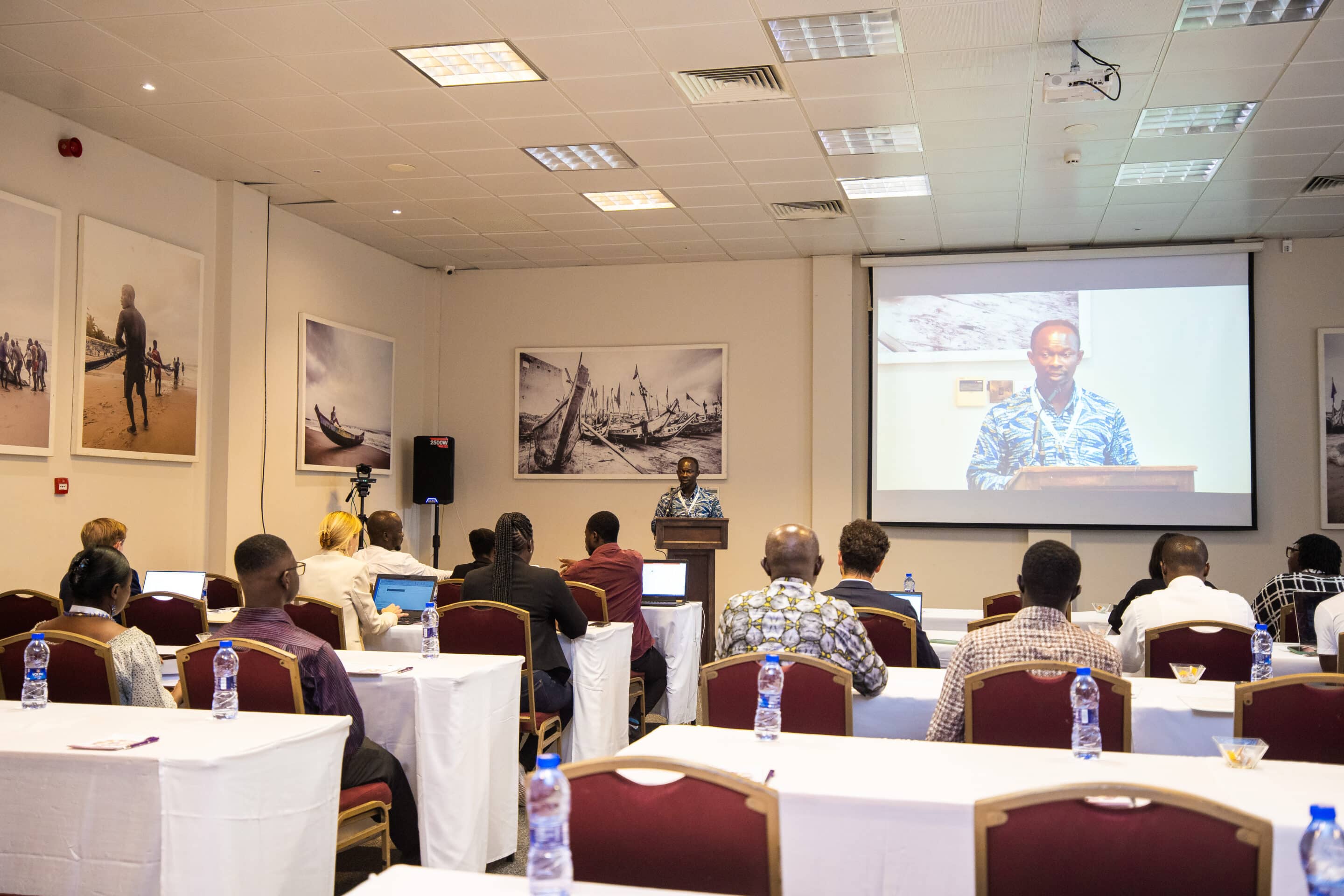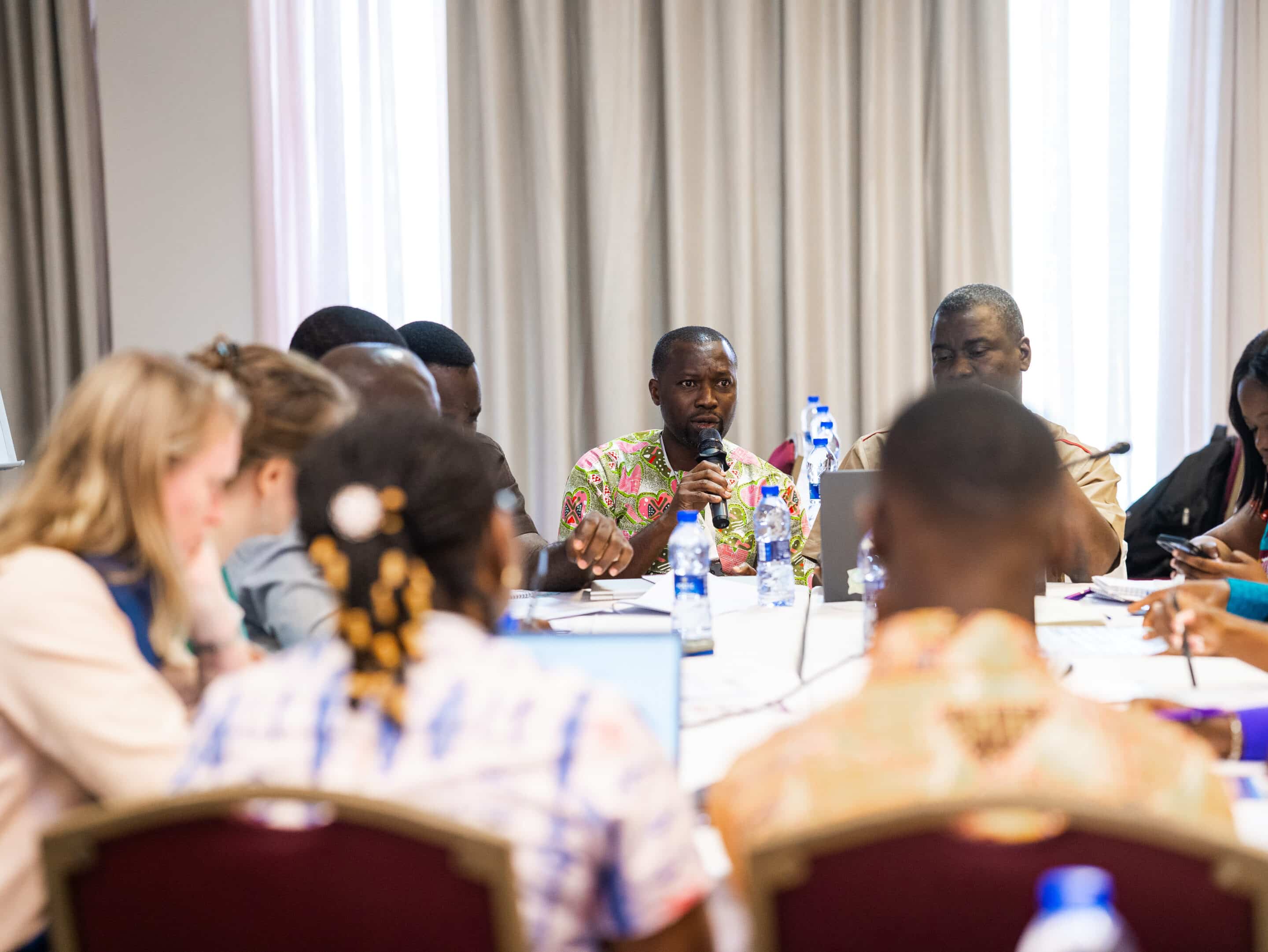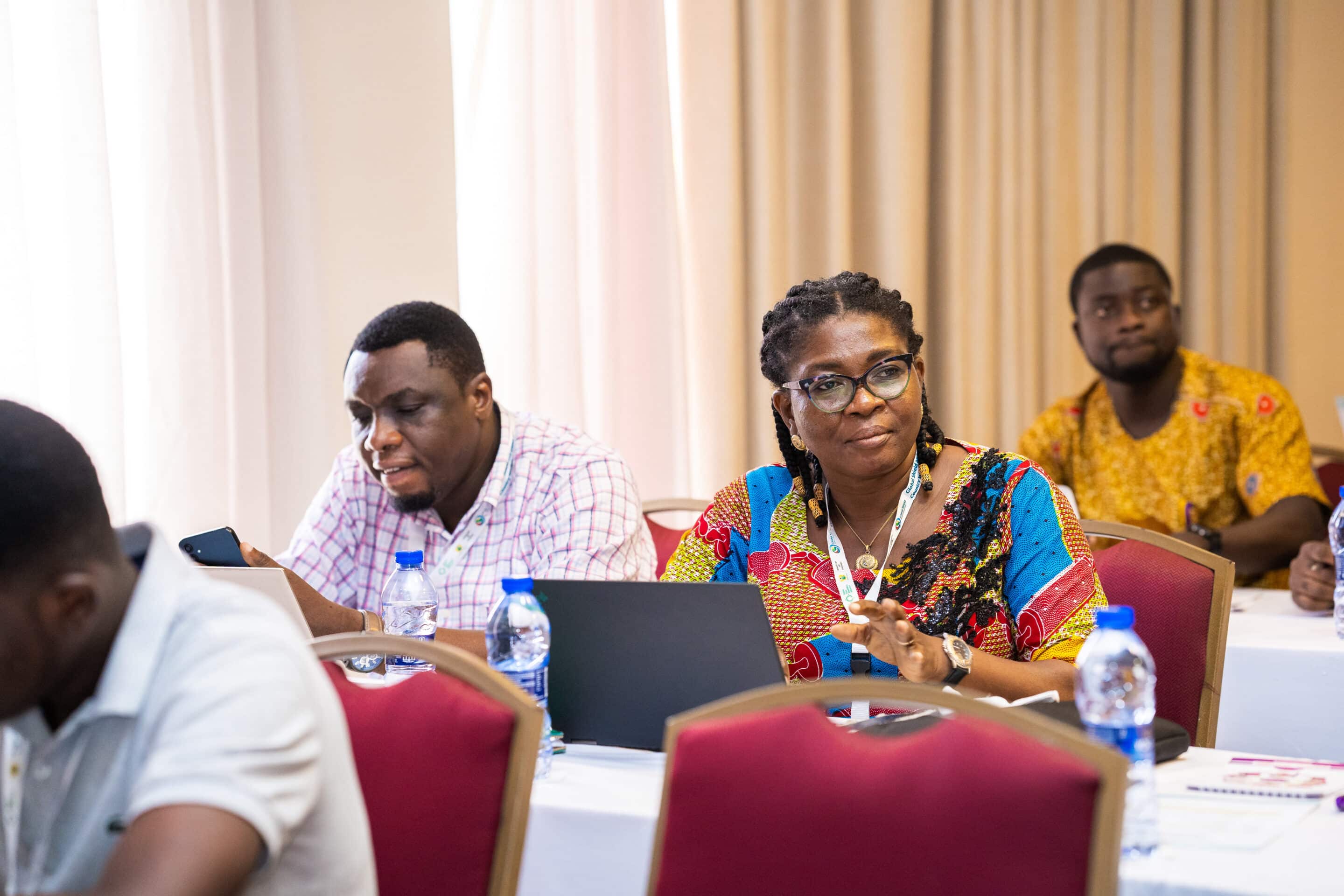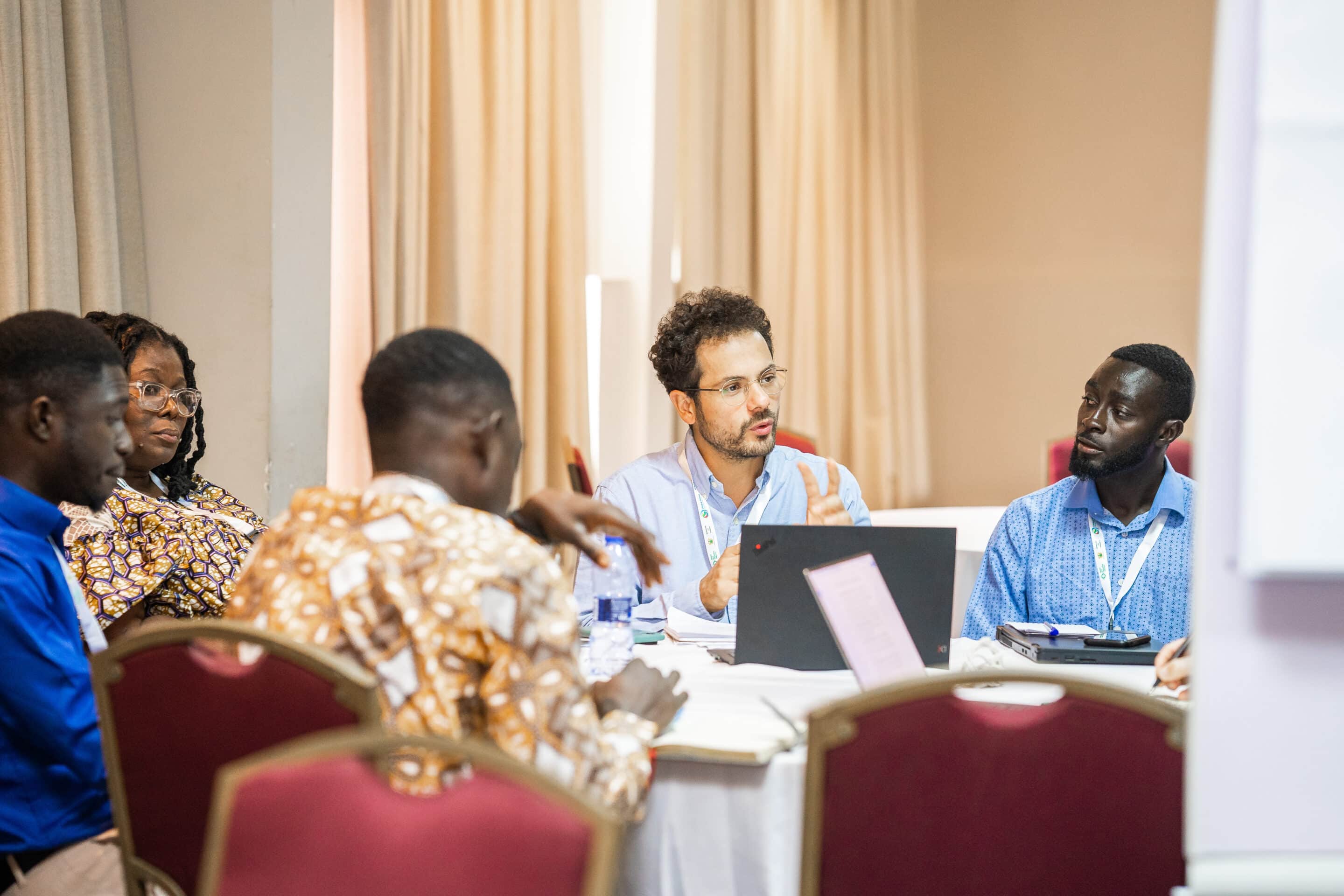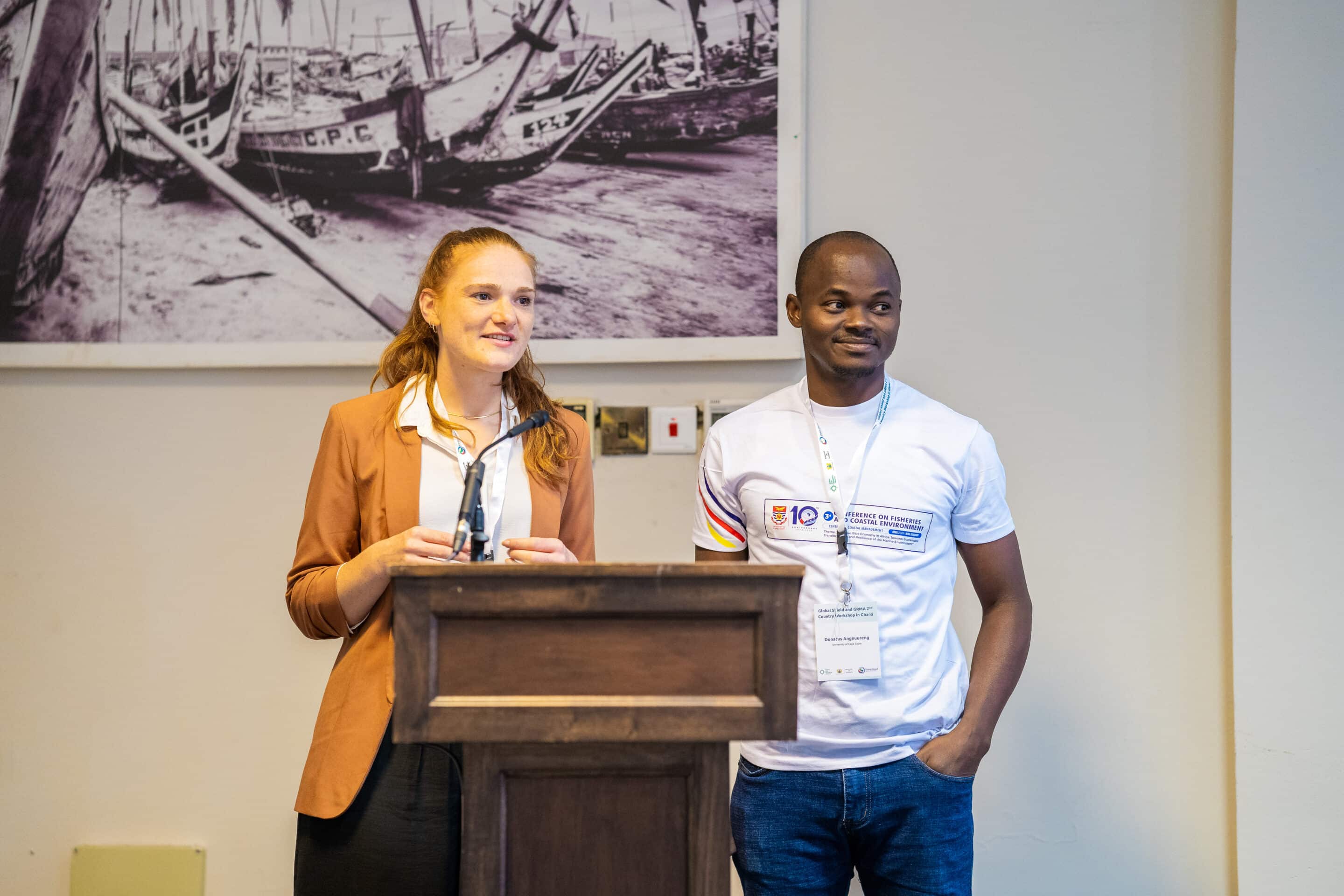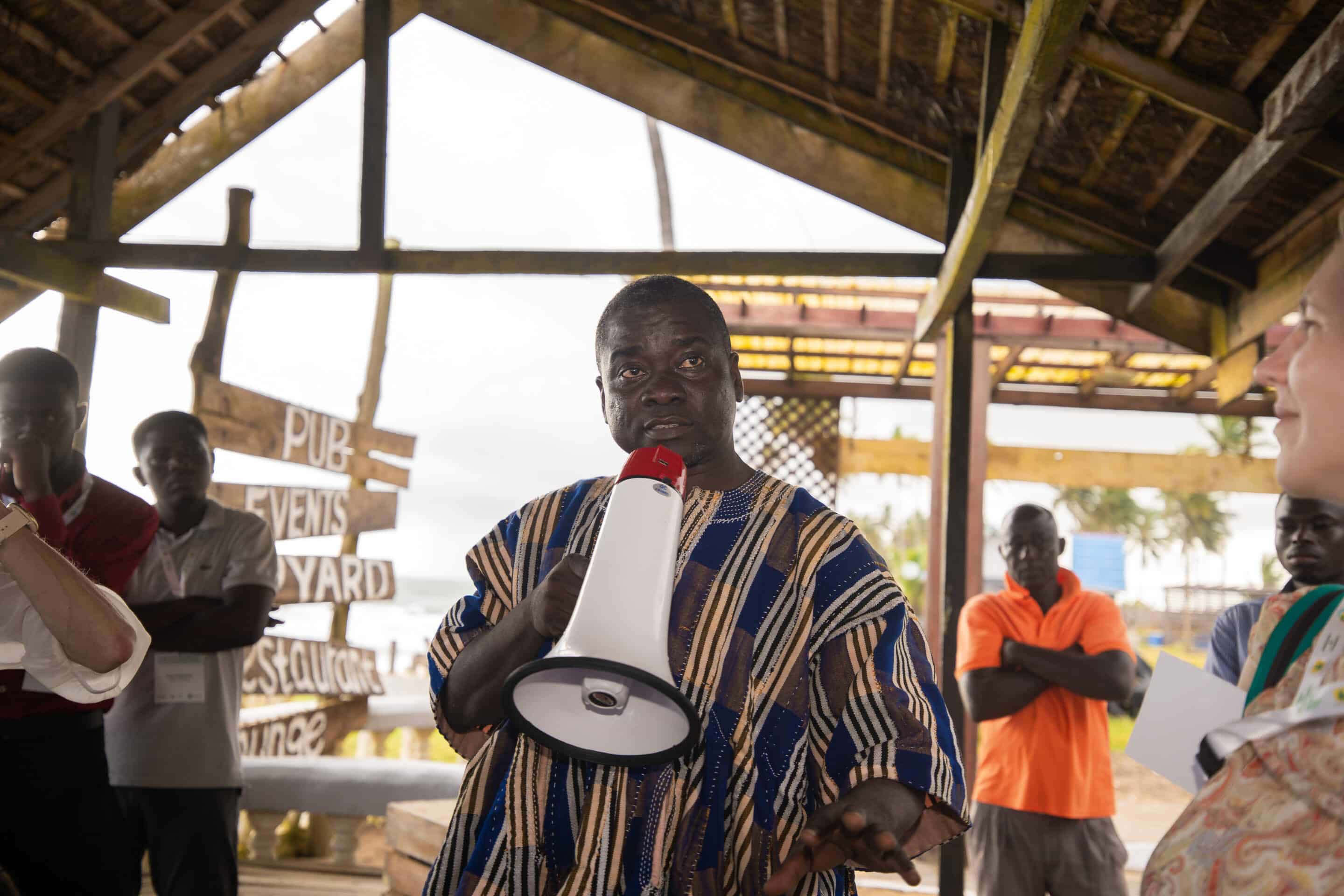The workshop held on the 8th and 9th of November in Cape Coast, Ghana, paved the way for Ghana to receive tailored support by the Global Shield to scale up financial protection against climate risks. Facilitated by the Ministry of Finance, the Global Shield Secretariat, and the team of the Global Risk Modelling Alliance (GRMA), the workshop set the stage for a constructive dialogue, showcasing active stakeholder participation, and fostering ideas for how the Global Shield can help Ghana tackle financial protection gaps of the most vulnerable communities.
The gathering drew in a diverse group of important stakeholders, including key ministries such as Food & Agriculture, Gender, Children & Social Protection, Environment, as well as agencies like the Environmental Protection Agency, Hydrological Authority, National Disaster Management Organisation, Meteorological Agency, and National Insurance Commission.
The inclusive workshop also featured CSO representatives, national private sector entities, implementing organizations, and universities, ensuring a wide range of perspectives and expertise.
To bridge theoretical knowledge with the understanding of practical challenges, the workshop integrated a field trip with academic insights into the risks confronting Ghana’s coastal regions. The field trip helped participants to better understand risks of coastal flooding in Cape Coast and along Ghana’s entire coastal line, including severe erosion of up to 17 meters annually in Keta.
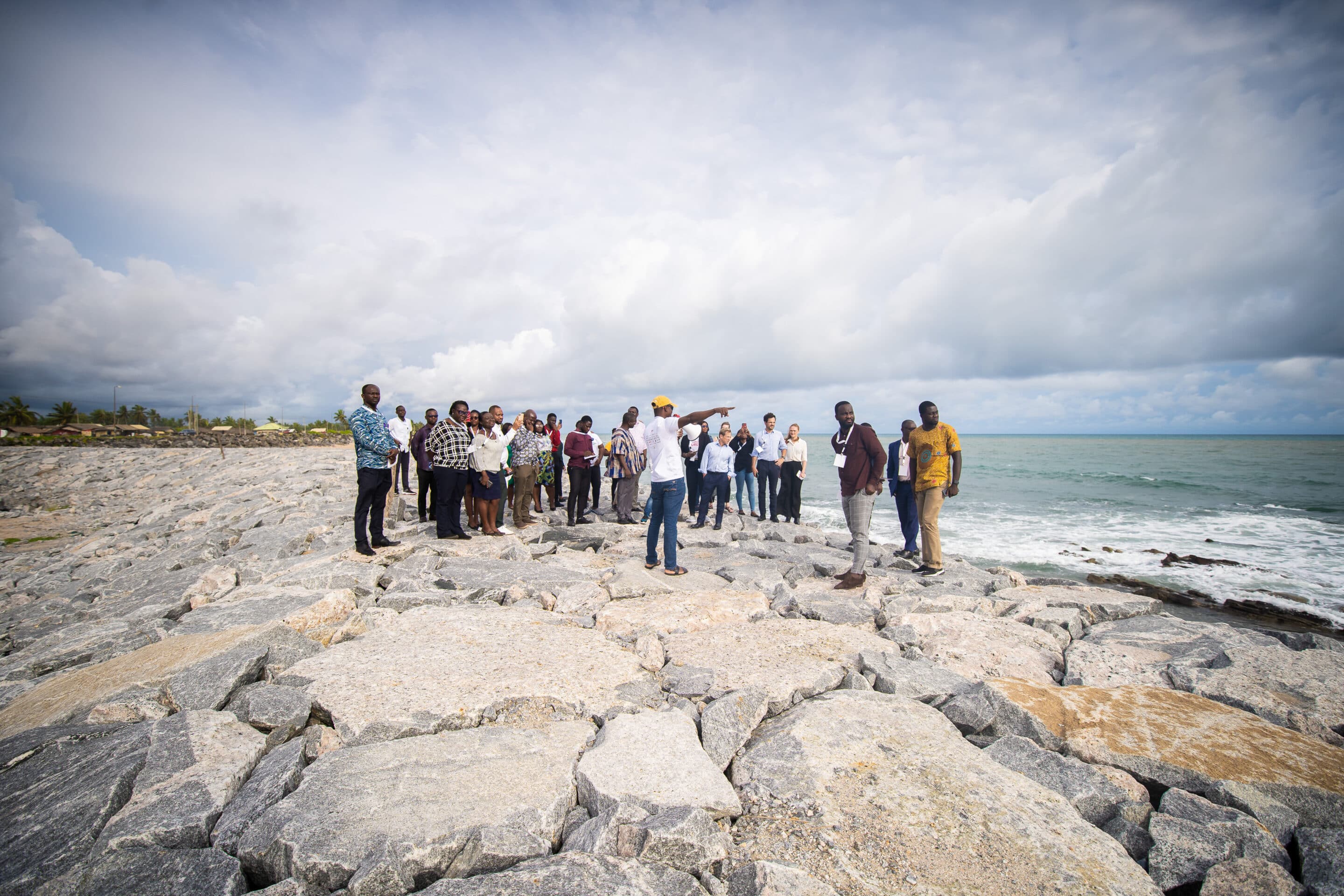
© Leslie Nanbigne
At the centre of the workshop was the presentation of the outcomes of the Gap Analysis and Stocktake, a critical step that was conducted over the previous months based on several stakeholder consultations and desk research. The findings of the Gap Analysis inform the Request for Support to the Global Shield and the GRMA, which concentrates on three priority areas: climate impacts on the agricultural sector, coastal regions, and urban areas.
The stakeholders intensively discussed potential areas of intervention within these priority areas. Some institutions had prepared proposals for specific areas of interventions, demonstrating a strong buy-in and commitment to the Global Shield process across the government.
© Leslie Nanbigne
Currently, the final request is at the stage of internal review by the Ministry of Finance with the aim to submit it to the Global Shield before COP28. This showcases Ghana’s leadership as first pathfinder country to initiate the Global Shield process towards better and more efficient Climate and Disaster Risk Finance and Insurance.
The success of this workshop highlights the importance of diverse stakeholder engagement, innovative problem-solving, and the translation of risk information into actionable plans to scale up prearranged finance against climate risks. The workshop in Cape Coast marks a stepping stone in the collaborative In-Country Process where country leadership, international cooperation and proactive measures help safeguarding vulnerable regions against financial impacts of climate-related disasters.

